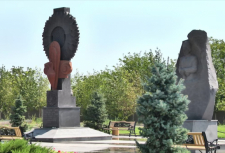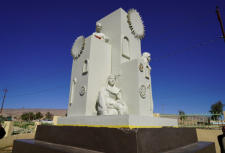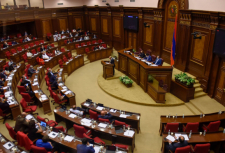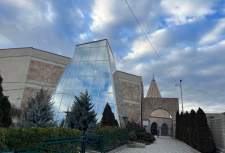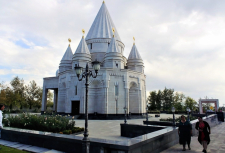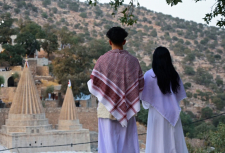Reference information YAZDA Report
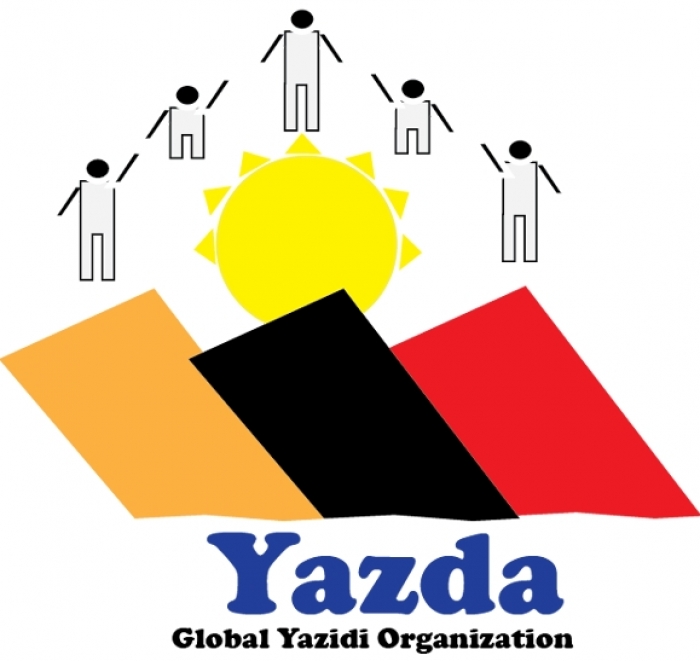
Yazidis are an ethnic and religious minority with a culture that dates back more than 6,000 years and is based mainly in Northern Iraq and Syria, with migrant communities in Europe and North America. In the summer of 2014, the so-called (IG) launched systematic attacks on civilians in Syria and Northern Iraq. On 3 August, the extermination campaign reached Sinjar, where most of the world's Yazidis lived at the time, an ethno-religious minority with a centuries-old heritage throughout the Middle East. The UN independent international Commission of inquiry on the Syrian Arab Republic, in its report on crimes committed against the Yazidis, noted: "the date of August 3, 2014 will be a dividing line, demarcating when one life will end, and – for those who survived – when another, infinitely more brutal existence will begin.”
In the following weeks, about 12,000 Yazidis were killed or abducted by ISIS. An estimated 6,800 Yazidis, mostly women and children, were abducted and subjected to prolonged sexual, psychological and physical violence. ISIS also forced the Yazidis to convert to Islam and separated the younger boys from their families, sending them to re-education camps and then to the frontline as child soldiers. The genocide was also directed against the rich and ancient cultural heritage of the Yazidi people, some of the most important religious and cultural sites were systematically destroyed by the group. ISIS has also set booby traps in Yazidis ' homes, completely preventing Yazidis from returning to their homeland, even long after the so-called “Caliphate” was declared largely defeated in Iraq.
The United Nations, the European Parliament, the Council of Europe, the United States House of Representatives and the parliaments of Armenia, Australia, Canada, France, Scotland and the United Kingdom recognized that the crimes committed by the so-called Islamic state against the Yazidis amounted to genocide. However, until today, five years after the genocide began, justice has not been restored and nearly 3,000 women and children remain missing, many of whom are still believed to be in captivity.
To date, the Yazidis have not been able to return to their homes and no meaningful action has been taken to address political and security issues in Sinjar and other minority areas. More than 400,000 people remain displaced and cannot return to their homes, living in very difficult conditions in IDP and refugee camps in the middle East and Europe.
Yazda
Tags:
Reference information YAZDA Report

Yazidis are an ethnic and religious minority with a culture that dates back more than 6,000 years and is based mainly in Northern Iraq and Syria, with migrant communities in Europe and North America. In the summer of 2014, the so-called (IG) launched systematic attacks on civilians in Syria and Northern Iraq. On 3 August, the extermination campaign reached Sinjar, where most of the world's Yazidis lived at the time, an ethno-religious minority with a centuries-old heritage throughout the Middle East. The UN independent international Commission of inquiry on the Syrian Arab Republic, in its report on crimes committed against the Yazidis, noted: "the date of August 3, 2014 will be a dividing line, demarcating when one life will end, and – for those who survived – when another, infinitely more brutal existence will begin.”
In the following weeks, about 12,000 Yazidis were killed or abducted by ISIS. An estimated 6,800 Yazidis, mostly women and children, were abducted and subjected to prolonged sexual, psychological and physical violence. ISIS also forced the Yazidis to convert to Islam and separated the younger boys from their families, sending them to re-education camps and then to the frontline as child soldiers. The genocide was also directed against the rich and ancient cultural heritage of the Yazidi people, some of the most important religious and cultural sites were systematically destroyed by the group. ISIS has also set booby traps in Yazidis ' homes, completely preventing Yazidis from returning to their homeland, even long after the so-called “Caliphate” was declared largely defeated in Iraq.
The United Nations, the European Parliament, the Council of Europe, the United States House of Representatives and the parliaments of Armenia, Australia, Canada, France, Scotland and the United Kingdom recognized that the crimes committed by the so-called Islamic state against the Yazidis amounted to genocide. However, until today, five years after the genocide began, justice has not been restored and nearly 3,000 women and children remain missing, many of whom are still believed to be in captivity.
To date, the Yazidis have not been able to return to their homes and no meaningful action has been taken to address political and security issues in Sinjar and other minority areas. More than 400,000 people remain displaced and cannot return to their homes, living in very difficult conditions in IDP and refugee camps in the middle East and Europe.
Yazda
Tags:


